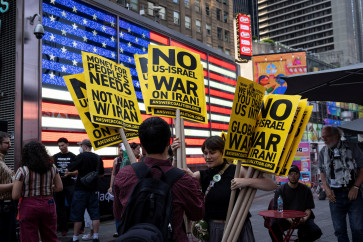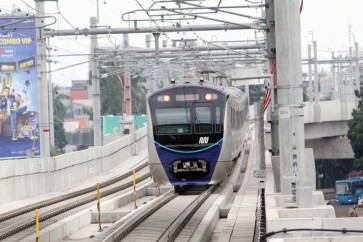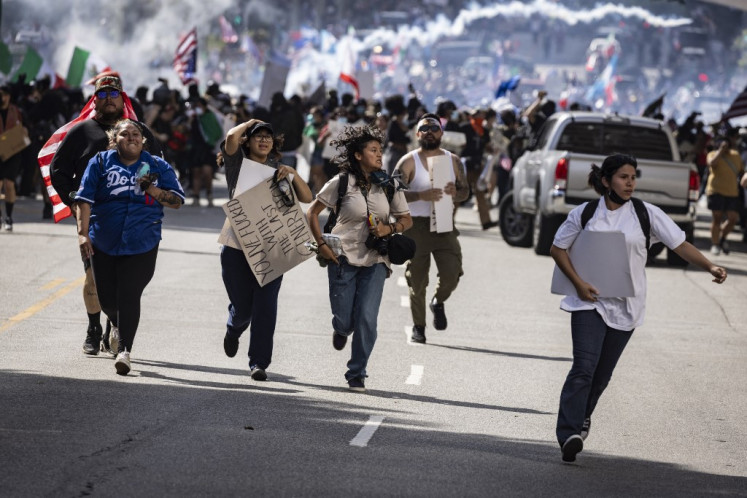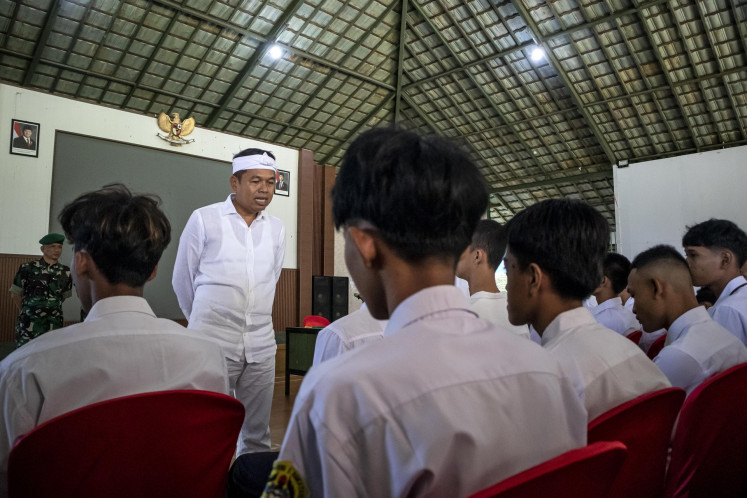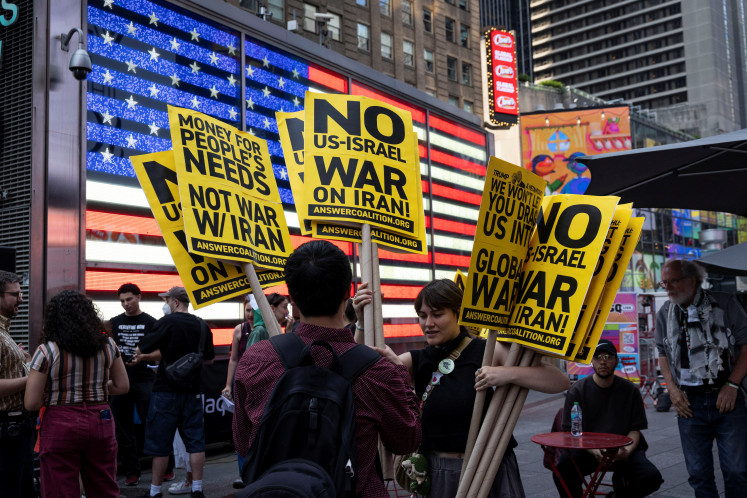MRT plan hanging by a thread as traffic apocalypse looms
Jakarta — the only megacity in Asia without a mass rapid transit (MRT) system — is now facing a possible traffic apocalypse that will leave the city at a standstill
Change text size
Gift Premium Articles
to Anyone

J
akarta — the only megacity in Asia without a mass rapid transit (MRT) system — is now facing a possible traffic apocalypse that will leave the city at a standstill.
Instead of speeding up the process to make the MRT a reality, the governor of Jakarta has chosen to put the decades-old plan on hold, pending the results of potentially stiff negotiations with the central government over how much it should pay for the multi-billion project.
I am not accusing Governor Joko “Jokowi” Widodo of deliberately stalling the project’s execution. His concerns about the feasibility of the MRT are not entirely groundless, but seeing his policies for other transportation projects, I am just not sure whether the governor is just being prudent or simply having no vision at all of Jakarta’s future.
It seems that he is applying different standards for different policies. It is unclear, for instance, if the governor wants the administration to play a greater role in financing public service or to leave the most of it to the private sector.
This is the problem. We do not know what Jokowi wants.
We know that the governor is unsure if the current MRT plan is feasible enough to proceed.
It is first of all overpriced, he said. It is estimated to cost around US$1.8 billion. Previous officials decided to borrow from Japan to cover about 80 percent of the figure, with the central government pledging to shoulder 52 percent of the loan.
This is a lot of public money we are talking here. What if the project turns out to be a total disaster? Who will be responsible to repay the loan?
Jokowi has a point. That is a valid concern.
For that reason, the governor said that he wanted to make some changes to the project’s financing scheme to ensure that it will not be a liability to the city administration in the future. He is asking the government to pay 60 to 70 percent of the loan from Japan and subsidize the MRT fares.
A hefty subsidy is needed because the ideal ticket price for the MRT is around Rp 9,000 (94 US cents), while the actual ticket price without subsidy is estimated to be around Rp 38,000.
That is much more expensive than other MRT fares in the region, including Singapore where each passenger is charged between S$1 and S$2.30 per trip.
The governor is also planning to renegotiate with the Japan International Cooperation Agency (JICA) and to make PT MRT Jakarta — the project’s developer — fully responsible if something goes wrong with the project.
The point is; Jokowi wants to ease the city’s burden. This is probably good, but still begs a few questions.
The contract with JICA has already been negotiated and signed by previous officials and there is a slim chance that Jokowi will be able to have it revised. What’s the point of making any deals if you can change it anytime you like?
It’s possible, but it will not be easy. It is also unthinkable for the government to subsidize the MRT fares as this could set a bad precedent for other provinces. His attempt is not only virtually futile; it may only further delay the realization of the MRT.
Moreover, Jokowi’s objection against the MRT actually applies to other massive transportation projects, including the monorail, which the governor had already approved. How can the governor be sure that the Rp 12 trillion project — which will be fully funded by the private sector — is more feasible?
Is there any guarantee that the project will not fail and force the administration to rescue it? The last time I checked, other governments have been forced to either scrap monorails or buy them from the private sector after being declared bankrupt.
If Jokowi wants to cut the administration’s stake in the financing and operation of the MRT, why is he pushing the city councilors to grant brand new buses to private transportation firms like Kopaja and Metromini on the ground that public transportation is the city’s responsibility?
Councilors have opposed this plan, saying that taxpayers’ money should not be given to private companies.
The MRT is not a cheap project. It is not a Metromini, but it may prove effective in solving the city’s traffic woes, which will have tremendous economic and social advantages for every citizen in Jakarta. If Jokowi uses the same logic he used to justify the Metromini grant plan, he should have ensured that his administration will do its best to make the MRT a reality — even if it burdens the city’s coffers.
It is our own fault that the MRT has been delayed for decades and we have to pay for that mistake. But the price of letting the city fall into a state where it completely ceases to function will be much costlier.
We cannot read Jokowi’s mind. It is hard to say if the MRT will ever be a reality in Jakarta. Nevertheless, I hope the governor is just being extra careful about the project, but he should not prolong the uncertainty because being prudent could be easily mistaken for being indecisive.
The governor should know. Jakarta is running out of time and the last thing we need is an indecisive leader.
The author is a staff writer at The Jakarta Post.


